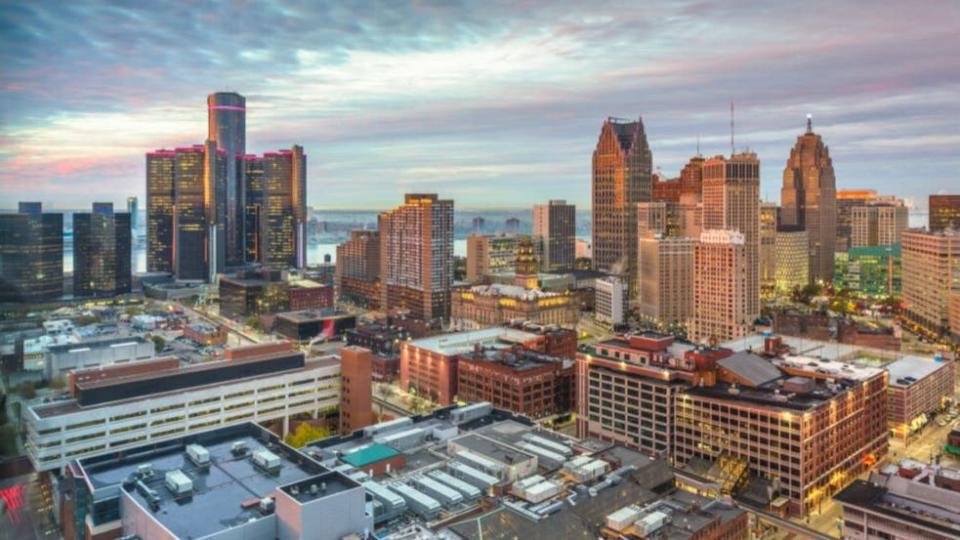
For many of the past 50 years, Detroit, Michigan has been a grim symbol of America’s industrial decline, but that was yesterday. Today’s Motor City is on the rise, and local property values are surging. This is especially true for Detroit’s predominately Black neighborhoods, which disproportionately bore the brunt of the city’s decline in the 1970s, 1980s and 1990s.
A recent University of Michigan Poverty Solutions Report shows that home values increased by 80% in Detroit’s African American neighborhoods between 2014 and 2022. That translates to a multi-billion dollar increase in total value for Detroit’s Black homeowners, who saw the combined value of their property rise from $3.2 billion in 2014 to $6.2 billion in 2024.
That’s especially important in a city where the Black population is about 75% of the total population. However, the property value gains are citywide. During the same period from 2014-2022, the total overall property value in Detroit rose from $4.1 billion to $8.1 billion. That’s almost a 100% increase in property values citywide. It is a welcome switch from the situation in Detroit 11 years ago when the city went bankrupt.
Don’t Miss:
Detroit’s bankruptcy was the low point of an economic decline that had been decades in the making, but even against that backdrop, the Detroit bankruptcy was unprecedented in its size and scope. In 2013, Detroit was $18 billion in debt and had a $300 million annual budget deficit. Left with no options, it filed what was the largest municipal bankruptcy in American history.
Detroit emerged from bankruptcy in December 2014 but perhaps the most important development that year was the election of Mayor Mike Duggan, who helped oversee Detroit’s comeback. Under Duggan, Detroit has not only produced balanced budgets but even a few budget surpluses. He was also instrumental in helping to upgrade Detroit’s public services.
Duggan spoke about the city’s turnaround at a press conference at the University of Michigan. A beaming Duggan said, “When I got sworn in 10 years ago there were 1,000 people a month leaving this city. People were bailing out on Detroit right and left. Those who stayed are $4 billion better off because they bet on the city of Detroit.”
Trending:
Not long after his election, Duggan embarked on a mission to improve every aspect of life in Detroit. This civic improvement program also included private investment from Detroit’s business community. The results speak for themselves. The most obvious upgrades to Detroit’s public and private infrastructure can be seen in its downtown and midtown areas, both of which were ghost towns during the bad old days.
Perhaps the most impressive aspect of Detroit’s turnaround is that it has done it without displacing the city’s residents. In most cases where this kind of renewal takes place, a wave of new businesses and residents move in. They bring money with them, but they often change the character of neighborhoods forever. The people who suffered the most don’t benefit from the turnaround.
The exact opposite is happening in Detroit. The University of Michigan study showed that Detroit’s poorest neighborhoods were the ones that experienced the biggest jumps in property values. Detroit’s Condon neighborhood, where property values have surged from an average of $7,000 in 2014 to $71,000 in 2022, is a prime example of the benefit of Detroit’s rebirth going to the people who needed it the most.
Under Duggan’s leadership, Detroit has raised a combined $1 billion in public and private investment funds while adding 4,600 affordable housing units. Detroit’s financial standing has also improved drastically, with its credit rating increased to investment level. It’s a remarkably impressive turnaround. The Motor City is on the move again, and that’s good news for the American economy.
Read Next:
“ACTIVE INVESTORS’ SECRET WEAPON” Supercharge Your Stock Market Game with the #1 “news & everything else” trading tool: Benzinga Pro – Click here to start Your 14-Day Trial Now!
Get the latest stock analysis from Benzinga?
This article Property Values Surging In The Unlikeliest Of Midwestern Cities originally appeared on Benzinga.com
© 2024 Benzinga.com. Benzinga does not provide investment advice. All rights reserved.

